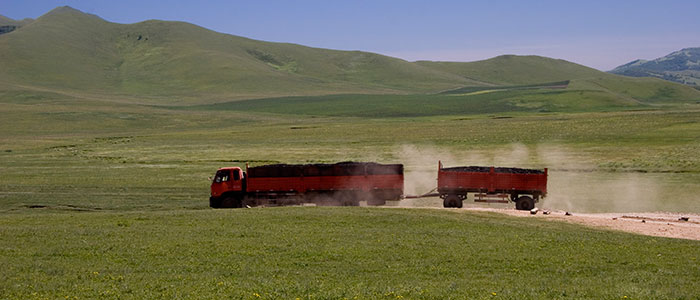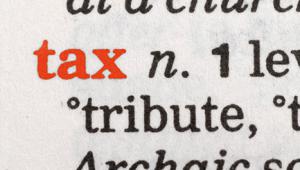Web_Mongolia_iStock_000010958063_Large.jpg

Coal truck in Mongolia
CEE Bankwatch Network, a Prague-based environmental NGO that monitors the activities of international financial institutions like the EBRD, said the bank has deepened countries’ dependence on unsustainable natural resource extraction and allowed corrupt or undemocratic elites to tighten their grip on societies.
Fidanka Bachevea-McGrath, Bankwatch’s EBRD campaign coordinator, said if the success of the bank is measured by the success of its recipient countries, its shareholders should seriously reconsider its approach.
“The bank was a leading force in the region, both in terms of finance and ideological guidance, as to how transition should be measured, but now it blames the lack of progress on the countries themselves,” she said.
This is despite the bank’s investments consistently running at odds with its own commitments to sustainable development, tackling the climate crisis, and fostering democracy.
Bankwatch’s report, released today to coincide with the EBRD’s 25th anniversary, points to two instances where the bank’s financial support has deepened countries’ economic dependence on natural resource extraction, leaving them “at the mercy of fluctuating commodity markets”.
Azerbaijan, for example, has benefited from EBRD financing towards the development of its gas fields and oil fields. Overall 44% of EBRD investments in the country have gone towards energy projects, with over $1.5bn spent on natural resources since 1997.
Hit by tumbling oil and gas prices, Azerbaijan now faces an economic crisis. In February the International Monetary Fund said that diversifying the economy should be a policy priority.
Bankwatch also noted that not only is the bank’s “petro-finance for Azerbaijan at odds with the EBRD’s commitment to help tackle the climate crisis, it is also a stark violation of the bank’s mandate to work only in country’s practicing multi-party democracy”.
At least 13 coal and metals mining operations in Mongolia have also received sizeable financial support from the bank since 2006, including the bank’s largest ever syndicated loan of $1.2bn.
The funds went towards the expansion of a copper and gold mine, despite unresolved complaints from local herders that it would cause irreversible damage to terrain and water sources for nomadic groups, Bankwatch points out.
Mongolia’s economy boomed after discovery of vast reserves of high-grade coal, copper and gold, a find expected to triple the country’s economy by 2020 and push millions of Mongolians into the global middle class.
But the OECD noted last November that the exploration of the country’s mineral resources has only “exacerbated governance and corruption challenges” for the fledgling democracy.
For Bancheva-McGrath, such examples demonstrate how the bank’s interventions have “promoted sustainable development and allowed for corrupt and undemocratic elites to get a tight grip on society”.
Bankwatch highlighted numerous other projects with adverse environmental and social impacts that overshadow the bank’s mission.
These include a hydropower development in Georgia and investments in nuclear power in Ukraine.
In both cases Bankwatch argued the EBRD had “turned a blind eye” to the lack of assessments of sustainable alternatives and relied on outdated plans for the energy sector development.
“These countries are indicative of a questionable trend of the bank using public money to support business as usual while overlooking both the public interest and its own environmental and social standards,” Bankwatch stated.
Pippa Gallop, Bankwatch’s research coordinator and one of the authors of the report, said the EBRD is taking one step forward and two steps back when it comes to sustainable development.
“The concept of economic transition has become so blurry as to be virtually meaningless. A thorough rethink of the bank’s purpose is needed in order to reorientate its investments from quantity to quality. But this is only going to happen if the EBRD’s shareholders push for it.”
An EBRD spokesman noted the pride of its president, Sir Suma Chakrabarti, in the bank’s achievements in the last quarter of a century.
Speaking at an event marking the bank’s anniversary, Chakrabarti highlighted that the bank had invested over €100bn to support countries’ economies, close infrastructure gaps, improve services, promote the development of environmentally-friendly energy, support small- and medium-sized firms, and reduce energy waste and pollution.
“This makes clear that despite many challenges the EBRD has indeed made an important contribution to positive developments in its countries of operations,” the spokesman said.













